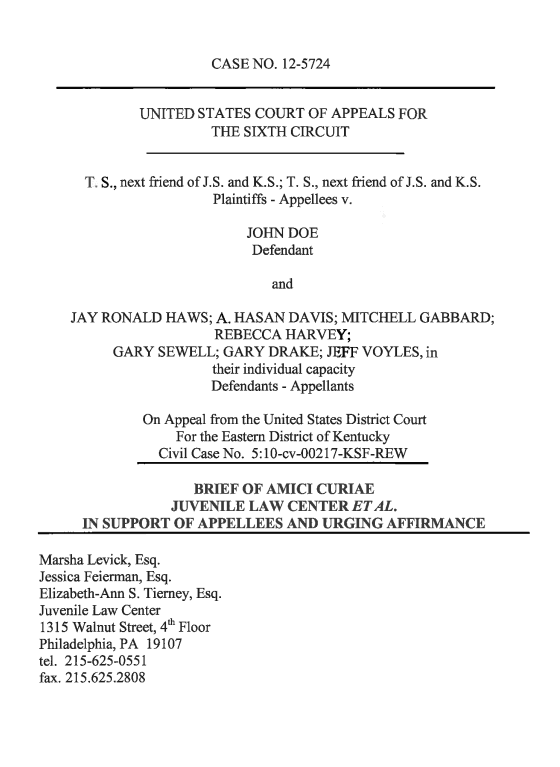
Summary of Argument
This case involves a question of exceptional importance regarding the constitutionality under the Fourth Amendment of the breathitt Regional Juvenile Detention Center (BRDC) policy of conducting suspicionless strip searches on juveniles arrested on minor violations - in this case, public intoxication. BRIDC conducted the searches not to locate contraband or weapons, but rather todetect illness, injury, and signs of abuse, and to document deformities, scars or tattoos. No court has ever upheld such a strip search as constitutional. Rather, the body of case law on strip searches in detention centers focuses on the government's interest in protecting safety by intercepting weapons and contraband.
The Constitution protects citizens from unreasonable searches by requiring searches to be based on a warrant and probable cause. In a very limited set of circumstances, government actors may conduct searches when there is a "special need" for the search. A search to detect abuse or injury does not quality as a "special needs" search. As a result, the searches at issue, which took place absent a warrant and probable cause, violated the Fourth Amendment. Moreover, even applying the special needs test, which requires the court to balance the intrusiveness of the search against the need for the information, the search was unconstitutional. The Supreme Court and courts around the country, relying on social science research, have recognized that strip searches are frightening, demeaning and degrading, and that juveniles are particularly vulnerable to harm from such searches. While the government may have an interest in detecting abuse, liness or injury, the search here, conducted by untrained personnel with no medical expertise, was not tailored to accomplish its goals, and cannot outweigh the harm of the strip search.